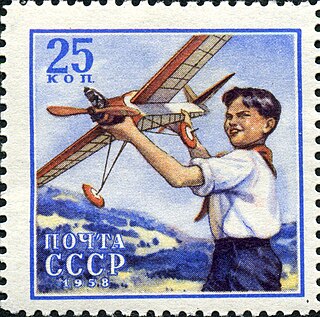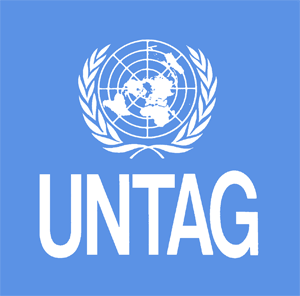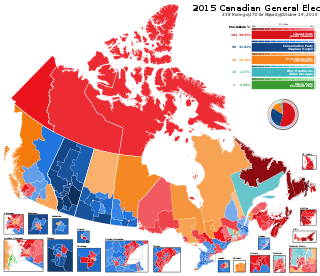Related Research Articles

The Organization of American States is an international organization founded on 30 April 1948 to promote cooperation among its member states within the Americas.

Children's Day is a commemorative date celebrated annually in honor of children, whose date of observance varies by country. In 1925, International Children's Day was first proclaimed in Geneva during the World Conference on Child Welfare. Since 1950, it is celebrated on June 1 in many countries. World Children's Day is celebrated on 20 November to commemorate the Declaration of the Rights of the Child by the UN General Assembly on 20 November 1959. In some countries, it is Children's Week and not Children's Day. The Sikhs celebrate Children Day on 20 December to 27 December. In the U.S., Children's Day is celebrated on the second Sunday of June.

In political science, voter turnout is the participation rate of a given election. This is typically either the percentage of registered voters, eligible voters, or all voting-age people. According to Stanford University political scientists Adam Bonica and Michael McFaul, there is a consensus among political scientists that "democracies perform better when more people vote."
A voting age in law is a minimum age established by law that a person is allowed to vote in a democracy.
The International Foundation for Electoral Systems (IFES) is an international, non-profit organisation founded in 1987. Based in Arlington, Virginia, United States, the organization assists and supports elections and electoral stakeholders. Since 1987, IFES has worked in 145 countries and has programs in more than 50 countries throughout Asia-Pacific, Africa, Eurasia, the Middle East, and North Africa, and the Americas.

Election monitoring involves the observation of an election by one or more independent parties, typically from another country or from a non-governmental organization (NGO). The monitoring parties aim primarily to assess the conduct of an election process on the basis of national legislation and of international election standards. There are national and international election observers. Monitors do not directly prevent electoral fraud, but rather record and report instances of suspicious practices. Election observation increasingly looks at the entire electoral process over a long period of time, rather than at election-day proceedings only. The legitimacy of an election can be affected by the criticism of monitors, unless they are themselves seen as biased. A notable individual is often appointed honorary leader of a monitoring organization in an effort to enhance legitimacy of the monitoring process.

Fair Vote Canada (FVC) is a grassroots, nonprofit, multi-partisan citizens' movement for electoral reform in Canada. Headquartered in Kitchener, Ontario, it promotes the introduction of an element of proportional representation for elections at all levels of government and throughout civil society, instead of the first-past-the-post electoral system currently used at all levels of government in Canada.

World Environment Day (WED) is celebrated annually on 5 June and encourages awareness and action for the protection of the environment. It is supported by many non-governmental organizations, businesses, government entities, and represents the primary United Nations outreach day supporting the environment.

FairVote, formerly the Center for Voting and Democracy, is a 501(c)(3) organization that advocates electoral reform in the United States.

The International Day of Peace, also officially known as World Peace Day, is a United Nations-sanctioned holiday observed annually on 21 September. It is dedicated to world peace, and specifically the absence of war and violence, such as might be occasioned by a temporary ceasefire in a combat zone for humanitarian aid access. The day was first established in 1981 and first observed in September 1982 and is kept by many nations, political groups, military groups, and people.
Women's History Month is an annual declared month that highlights the contributions of women to events in history and contemporary society. It is celebrated during March in the United States, the United Kingdom, and Australia, corresponding with International Women's Day on March 8, and during October in Canada, corresponding with the celebration of Persons Day on October 18.
Democracy Day may refer to:

Thanksgiving or Thanksgiving Day, is an annual Canadian holiday held on the second Monday in October. Outside of the country, it may be referred to as Canadian Thanksgiving to distinguish it from the American holiday of the same name and related celebrations in other regions.

The United Nations Transition Assistance Group (UNTAG) was a United Nations (UN) peacekeeping force deployed from April 1989 to March 1990 in Namibia, known at the time as South West Africa, to monitor the peace process and elections there. Namibia had been occupied by South Africa since 1915, first under a League of Nations mandate and later illegally. Since 1966, South African forces had been combating an insurgency by the People's Liberation Army of Namibia (PLAN), the military wing of the Namibian-nationalist South West African People's Organization (SWAPO). The UN Security Council passed Resolution 435 in 1978, which set out a plan for elections administered by South Africa but under UN supervision and control after a ceasefire. However, only in 1988 were the two parties able to agree to a ceasefire. As UNTAG began to deploy peacekeepers, military observers, police, and political workers, hostilities were briefly renewed on the day the transition process was supposed to begin. After a new round of negotiations, a second date was set and the elections process began in earnest. Elections for the constitutional assembly took place in November 1989. They were peaceful and declared free and fair; SWAPO won a majority of the seats. The new constitution was adopted four months later and it was followed by Namibia's official independence and the successful conclusion of UNTAG.
Moumouni Adamou Djermakoye was a Nigerien politician and the President of the Nigerien Alliance for Democracy and Progress. He was an important minister during the regime of Seyni Kountché and subsequently served as Niger's Ambassador to the United States from 1988 to 1991; later, after founding the ANDP, he served as President of the National Assembly of Niger from 1993 to 1994. He was the ANDP's candidate in four presidential elections, beginning in 1993; he was also a deputy in the National Assembly from 1999 to 2009 and the President of the High Court of Justice from 2005 to 2009.

In 2007 the United Nations General Assembly resolved to observe 15 September as the International Day of Democracy—with the purpose of promoting and upholding the principles of democracy—and invited all member states and organizations to commemorate the day in an appropriate manner that contributes to raising public awareness.
…while democracies share common features, there is no single model of democracy and that democracy does not belong to any country or region... …democracy is a universal value based on the freely-expressed will of people to determine their own political, economic, social and cultural systems, and their full participation in all aspects of life.

The 2015 Canadian federal election held on October 19, 2015, saw the Liberal Party, led by Justin Trudeau, win 184 seats, allowing it to form a majority government with Trudeau becoming the next prime minister.

UK Parliament Week, previously called Parliament Week, is an annual series of events in the United Kingdom that aim to inspire interest in parliament, politics and democracy and encourage young people and the public to engage with the UK's democratic system and institutions. Initiated in 2011, a week-long programme of events and activities is organised each year by the House of Commons and House of Lords of the Parliament of the United Kingdom in collaboration with hundreds of other organisations around the country including charities, schools, museums and community groups.

Anita M. Vandenbeld is a Canadian politician, who was elected to represent the riding of Ottawa West—Nepean for the Liberal Party of Canada in the House of Commons of Canada in the 2015 Canadian federal election. She was re-elected in the same riding in 2019, and re-elected in 2021.
Forum for Democracy is a far-right political party in the Netherlands, founded as a think tank by Thierry Baudet and Henk Otten in 2016. The party first participated in elections in the 2017 general election, winning two seats in the House of Representatives.
References
- ↑ "Fair Vote Canada Newsletter August 2011". Fair Vote Canada. Archived from the original on 2011-09-12. Retrieved September 16, 2011.
- ↑ "Invitation aux médias - 15 septembre Journée de la démocratie". Mouvement pour une démocratie nouvelle (MDN). Archived from the original on 2013-01-15. Retrieved September 16, 2011.
- ↑ "Fair Vote Canada Launches Democracy Week". Fair Vote Canada. Archived from the original on 2011-09-10. Retrieved September 16, 2011.
- ↑ "International Day of Democracy". United Nations. Retrieved September 16, 2011.
- ↑ "Happy Democracy Day, Canada! Or Is it?". Huffington Post Canada. Retrieved September 16, 2011.
- ↑ "PR: Young Canadians Invited to Create "The Art of Democracy"". Elections Canada. Retrieved September 16, 2011.